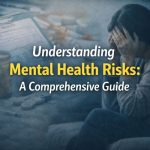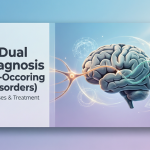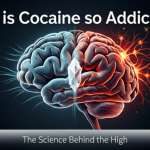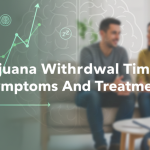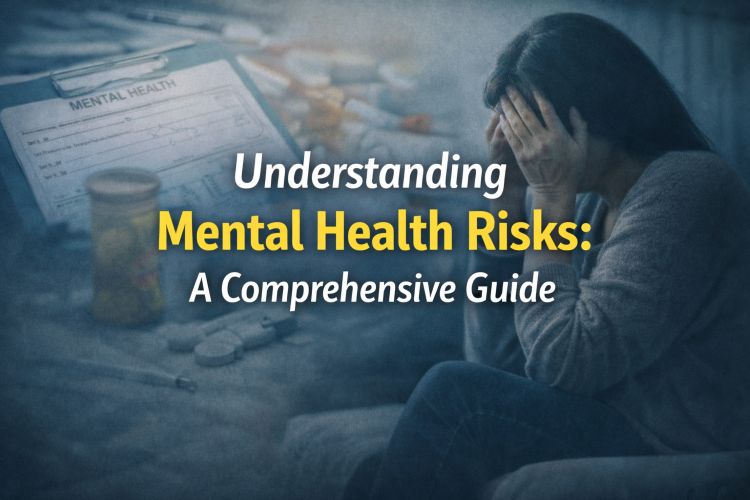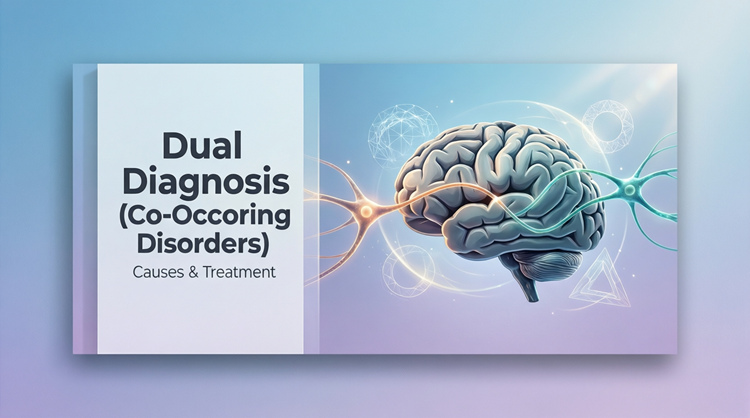More than often navigating the complexities of mood disorders can be overwhelming. Millions of people around the world suffer from depression, bipolar disorder and anxiety. Fortunately, there are a number of ways people can return to emotional balance and live full lives. Getting to the bottom of the treatment for mood disorders, and deciding on the best path to wellness are the first steps toward recovery. In this guide, we take a look at the most well-suited treatments for mood disorders using traditional, innovative, and holistic therapies.
1. Mood Disorder Traditional Treatments
Traditional medical approaches generally form the backbone when thinking about the best treatment for mood disorders. Over the decades of clinical research these methods have been refined so that they now have a solid evidence base.
Medication
Common treatment to manage mood disorders include antidepressants, mood stabilizers and antipsychotic medications. The medication plan takes into account individual symptoms and individual responses. Medication will obviously do a lot, but in most cases it works best when used in conjunction with other kinds of therapy.
Psychotherapy
Cognitive-behavioral therapy (CBT), dialectical behavior therapy (DBT) are mainstays of mood disorder treatment. Both CBT and DBT help patients to identify and change negative thought patterns, CBT also offers a means for the patient to learn skills for emotional regulation and distress tolerance. Both therapies are successful parts of a comprehensive treatment for mood disorders.
2. Mood Disorders Natural Treatment
Natural treatment for mood disorders presents exciting alternative or complimentary options to traditional therapies for those looking for a holistic approach.
Lifestyle Changes
This all flows from the need for healthy habits to be foundational to emotional wellness. An increased regular physical activity, a balanced diet rich in omega 3 fatty acids, and normal sleep are all things that will significantly increase mood stability. Exercise especially raises endorphins and serotonin levels, leading to relief of depression and anxiety symptoms.
Mindfulness and Meditation
With mindfulness practices, you become more aware of and accept what is going on in the moment. Meditation helps to reduce stress and relaxes, and is therefore a very good tool to deal with anxious symptoms and depressive symptoms. It can be done through the incorporation of things like deep breathing exercises and guided visualization into a normal routine.
Nutritional Supplements
Omega 3 fatty acids, vitamin d, and the b vitamins have been tied to mood regulating supplements. While both of these can help with mental health it is important to contact your health care provider to make sure your safe and on the correct dosage.

100% Confidential Support is Available 24/7
No matter what you’re going through, you’re not alone. Our dedicated team is here to provide a safe, judgment-free space where you can talk openly and honestly. Whether you need emotional support, resources, or just someone to listen.
We’re here for you—completely confidential and always respectful of your privacy. Call us today!
3. Treatment for Mood Disorders Alternative
Seeking out alternative treatments for mood disorders can be a way forward to fresh and personalised approaches beyond conventional approaches to therapy.
Art and Music Therapy
Creative therapies offer special places to express feelings that would otherwise not make their way through. Visual media, such as art therapy, encourage self reflection, and music therapy which utilisa sound and rhythm to help alter mood and decrease stress. They are great for making deeper connection with emotions, and when words alone can’t convey it, they really come in handy.
Acupuncture
Acupuncture is rooted in traditional Chinese medicine and its theory of balance restoration which involves stimulating specific points on the body. Its potential research suggests it can affect neurotransmitter activity and aid in reducing depression and anxiety.
Animal-Assisted Therapy
Contact with animals has great emotional benefits. And the pet therapy or equine-assisted therapy, provides comfort, reduces anxiety and increases connection and joy. In increasingly becoming part of a comprehensive treatment plan for mood disorders, these therapies.
Deland Treatment Solutions
Battling with Drug and Alcohol Addition? Remember, you are not alone and we are here to help you!
4. How to Create a Personalized Treatment Plan
Starting with goals for treating mood disorder that are clearly stated and defined, recovery is more effective. Goals need to be tailor made to someone’s needs, symptoms, and life circumstances.
Examples of treatment plan goals include:
- Helps reduce frequency, as well as severity, of depressive episodes.
- Strategies for coping up with stress and anxiety.
- This helps with improving interpersonal relationships and social functioning.
- Creating resilience, emotional stability.
A skilled mental health professional can take you through a plan thoroughly with insightful questions, asking if your mood is interfering with your daily living, or how thoughts affect your quality of life, and help you craft a dynamic plan that evolves with progress and changing needs.
5. Combines Treatments for Holistic Wellness
No one approach works for everyone. The most effective treatment for mood disorders frequently uses several methods to target the mind, body, and spirit.
Medication and Therapy
Medication and psychotherapy is one of the most researched and the most effective approach to treating mood disorders. Symptom relief comes from medication but the underlying patterns and behavior are addressed by therapy.
Complementary Therapies
Lifestyle changes in tandem with complementary and alternative treatments coupled with traditional treatments is most effective. For example, CBT combined with standard exercise, mindfulness practice and healthy diet can make such recovery outcomes significantly better.
Choose the Right Treatment for Mood Disorders
The journey to finding the right treatment for mood disorders is a long one, but with the right support it is a journey to emotional wellness. The path to recovery is different for each individual whether through medication, therapy, lifestyle changes or holistic practices. Working with appropriate staff at a clinic for anxiety and mood-related disorders means care will be customized just for you.

Take the first step today. Contact DeLand Treatment Solutions at (386) 866-8689 to speak with our therapist, to learn more about how we may be able to help you or a loved one achieve lasting emotional wellness. We want to help you to have a brighter and healthier future.







